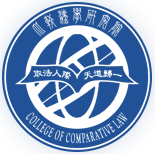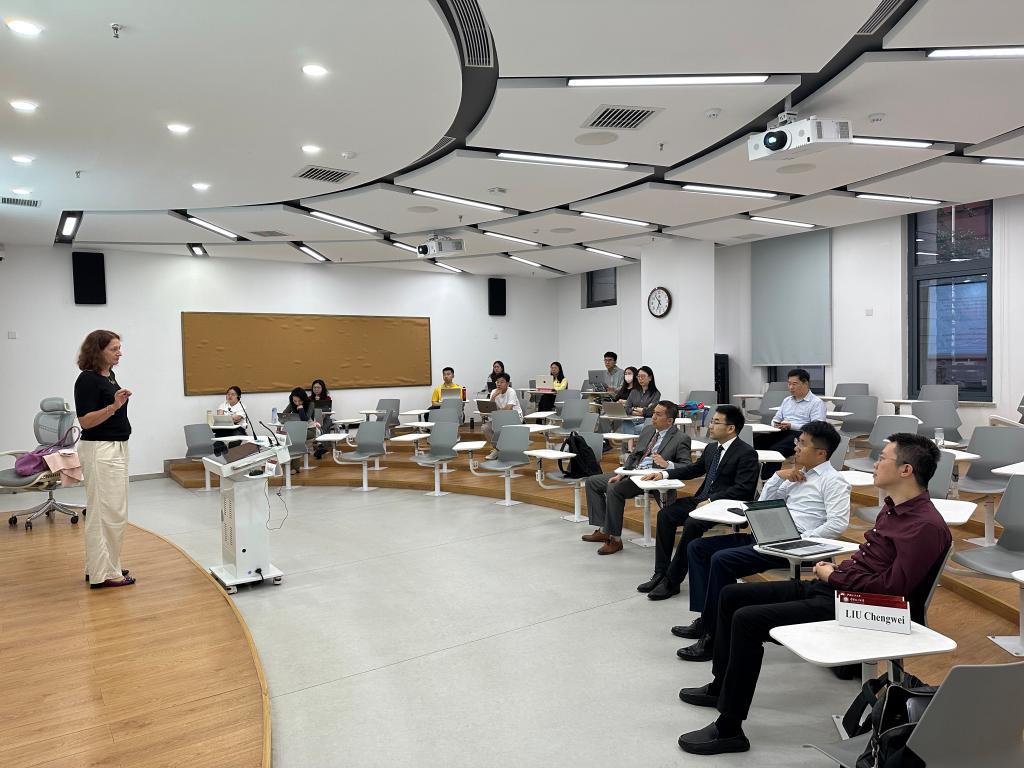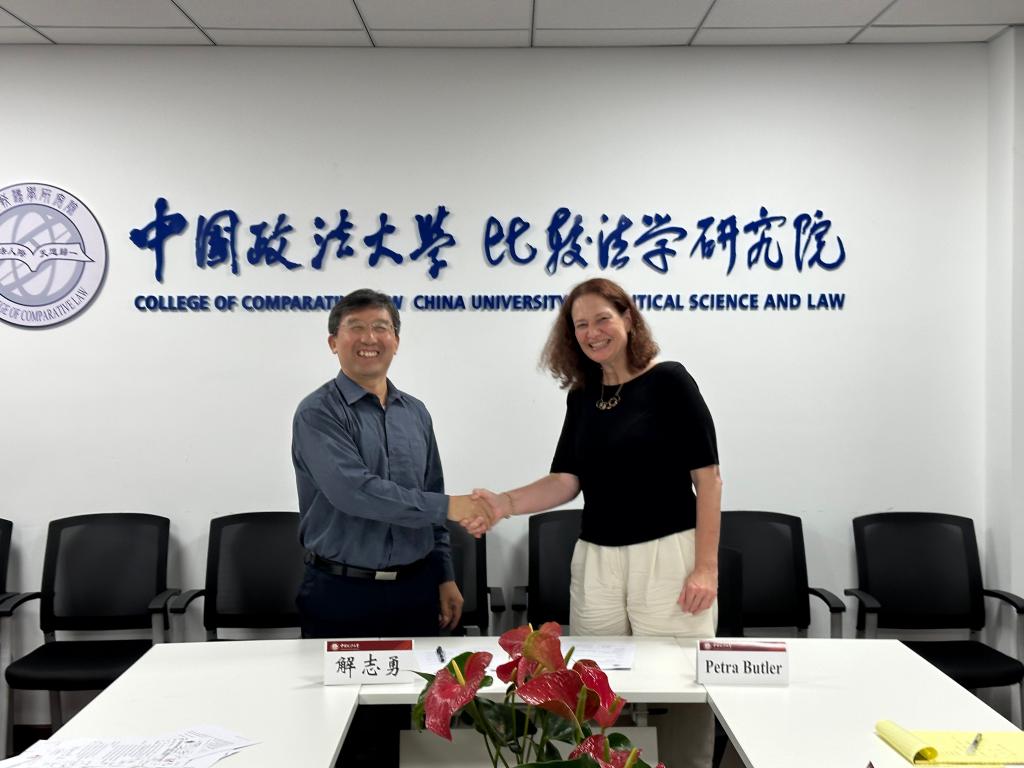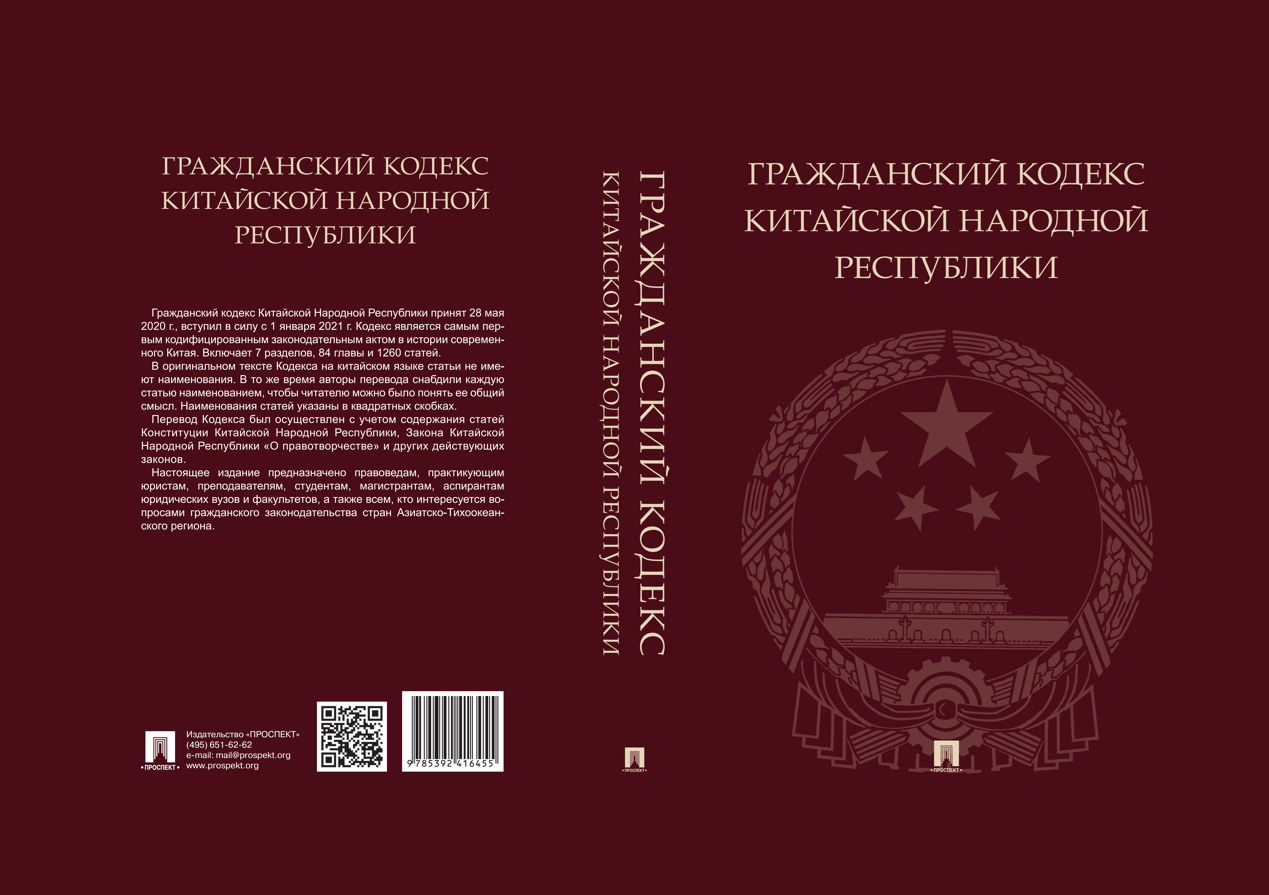The Symposium on the Review and Prospect of Civil Code in the Perspective of Comparative Law was held successfully in Beijing on 27 Nov, 2020.
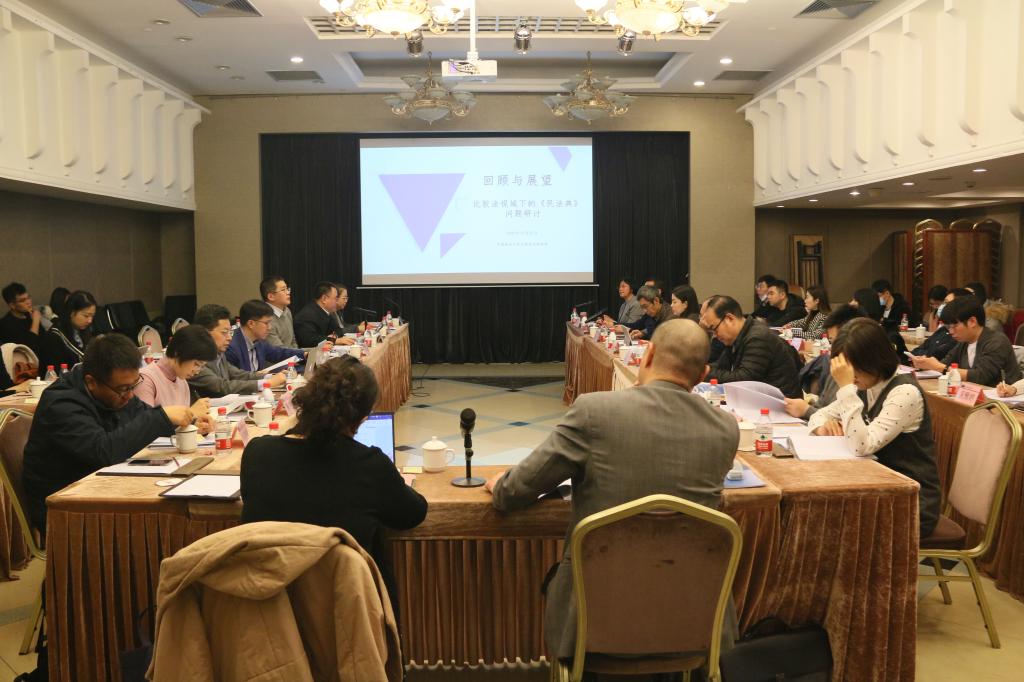
More than 20 experts and scholars from China University of Political Science and Law, Renmin University of China, Peking University, Tsinghua University, Beijing University of International Business and Economics University, Beijing University of Aeronautics and Astronautics, Central University of Finance and Economics and Beijing Normal University, as well as 10 doctoral students from the College were invited to attend the seminar.
Dean of the College Prof. Xie Zhiyong presented the opening remarks. He pointed out that the Civil Code accords with the core characteristics of the rule of law, which is one of the most symbolic laws and plays an important role in the construction of the rule of law and academic research. On behalf of the College of Comparative Law, he wished the seminar achieve the desired results.
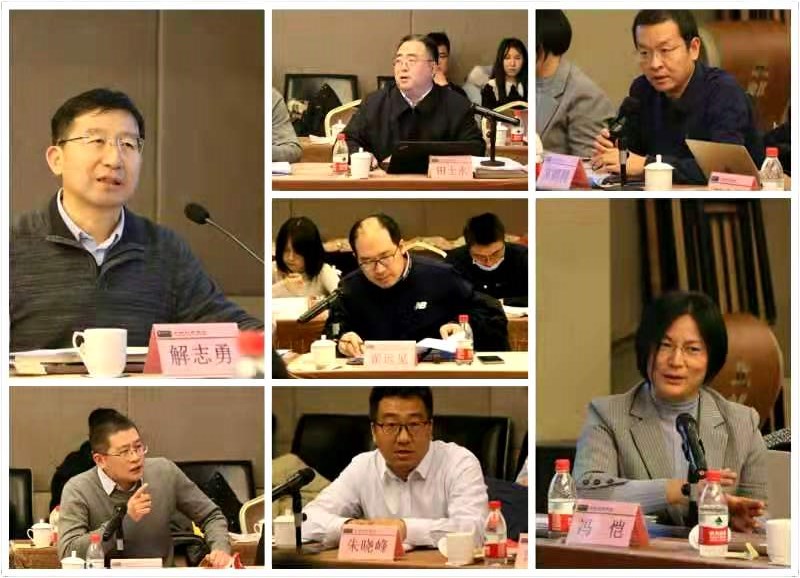
The symposium focused on different issues of the civil code from the perspective of comparative law and was divided into two sessions.
Prof. Fei Anling from the College presided over the dialogue of the first session. She pointed out at the beginning: “comparison broadens our horizons, tracing sources can make us more rational, and the interpretation of the civil code from the perspective of comparative law has special value”. Scholars then expressed their views on different issues.
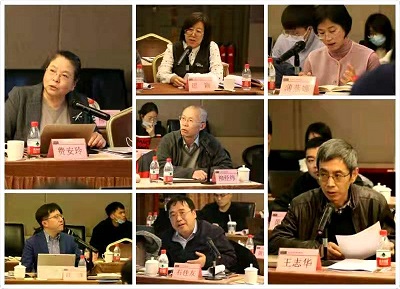
Prof. Chang Pengao from the Peking University made a penetrating analysis of article 406 of the Civil Code, pointing out that the interpretation of this article cannot bring it back to the original position of property law on the basis of the investigation of extraterritorial law. He also stressed that when there was a difference in the comparison between the extraterritorial experience and the domestic, special attention should be paid to the principle behind the rules and should not be limited to the surface of the provisions.
Prof. Tian Shiyong, Director of the Center for Law Education and Evaluation of CUPL, had an insight into the changes in civil law teaching in the era of the Civil Code. Combined with the experience of comparative law, he put forward his own views on the integration of civil law and commercial law, the orientation of personality protection in the teaching content, and the arrangement of the sequence of property law and contract law.
A/Prof. Zhai Yuanjian from the College made a report on the system of declaration of disappearance, emphasizing the necessity of establishing a temporary property administrator system in the context of the introduction of the Civil Code, whether based on fairness or efficiency. He pointed out that the interpretation and supplement of the existing rules should be done by eradicating legal tradition and learning from foreign legislative experience at the same time.
A/Prof. Zhu Xiaofeng from the Central University of Finance and Economics raised the issue of the relationship between general personality rights and specific personality rights from problems in practice, commenting on theories such as the theory of complementarity and the theory of conflict relationship. He also made an in-depth analysis of the applicable rules and exceptions of Article 994 of the Civil Code.
Prof. Ma Te from the Beijing University of International Business and Economics, Prof. Bo Yanna and A/Prof. Chi Ying from the College gave excellent comments on the speeches.
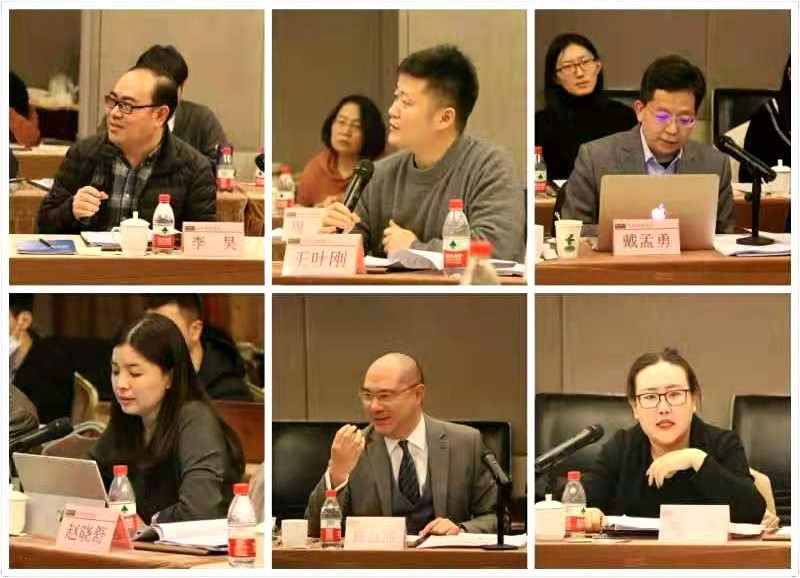
Prof. Wang Zhihua from the College presided over the second session. He emphasized that the criticism and suggestions of comparative law scholars would be beneficial to the further improvement of the Civil Code.
Afterwards, while affirming the significance of the civil code, Prof. Liu Jingwei from the College pointed out three dimensions of the evaluation of the Civil Code: the theory of the code, the history of the code compilation and the civil legislation. In his opinion, China’s civil code has two defects in forming orderly and manifesting property and freedom in essence, the wish of compiling the Civil Code in the 21st century was not satisfactory, and the Code consisted of too much compilation.
Prof. Shi Jiayu from the Renmin University of China, on the other hand, discussed the nature of codification, the shaping of the relationship between legislation and judicature, the legitimacy to be possessed, the initial motivation and the mission of the times in the sense of sociology of law. He made a panoramic observation on the phenomenon of codification and “decriminalization”, and emphasised that the profound changes of social and economic conditions make it necessary to “redefine” codification.
A/Prof. Wang Yang from the Tsinghua University explained the subject, object, power, duration and transfer issues, and the analogy between lease contracts and the right of abode and right of abode contracts in detail. He believed that legislation may fail to clarify its functional orientation, fail to realize the coherence of its system, and fail to clarify the differences between the right of abode and the right of abode contract.
A/Prof. Li Hao from the Beijing University of Aeronautics and Astronautics analyzed the protection of tort law from the perspective of comparative law in terms of system positioning and scope of protection. He also raises the question of whether the scope of civil rights protected by tort law can be used in the protection of personality rights.
On the other hand, A/Prof. Wang Yegang from the Central University of Finance and Economics expressed his views on the subject of the claim that infringes on the personal interests of the deceased, considering that the special feature of the protection of the personality interests of the deceased lies in the fact that it involves both private and public interests, spiritual interests and property interests, and noting that in the absence of public interests, the subjects of claims should not be subject to sequential restrictions. He believed that paragraph 2 of article 25 of the law on the protection of heroic martyrs may be applied by analogy to those involving the public interest.
Prof. Dai Mengyong from the School of Civil and Commercial Economic Law of CUPL, A/Prof. Zhao Xiaoshu from the Beijing Normal University, Dr. Wu Lan from the School of Juris Master of CUPL and Dr. Yang Ziran from the College commented on their reports.
At last, A/Prof. Feng Kai, Director of the China-America Law Institute of the College, made the concluding statement. “A code is just a moment in the development of the law... It’s just a ripple in the stream,” quoting Windsard, she said: “How to construct the rules of civil society and how to carry forward the spirit of autonomy of private law depend on the unremitting exploration and efforts of each member of the legal community”.





